How Did This Get Made: A Conversation With Mel Brooks, Executive Producer Of 'Solarbabies'
We may receive a commission on purchases made from links.
From Blazing Saddles and Young Frankenstein to Spaceballs and The Producers, legendary filmmaker Mel Brooks has been responsible for some of the most beloved movies ever made. And unsurprisingly, at various points in his career, he has discussed the making of almost all his films. Except for one—the lone dud in his canon—a film so bad The New York Times declared it "an embarrassment," and which Brooks has never publicly discussed: Solarbabies. Well, at least not until now. Because last week, on behalf of the How Did This Get Made? podcast, I spoke with Brooks at length to try and figure out how (the hell) did this get made?
Going into the interview, I expected to hear tales of unforeseen calamity and production run amok. But what I didn't expect—and what became the prevailing thread of our conversation—was the enormous personal toll that Solarbabies had on Brooks.
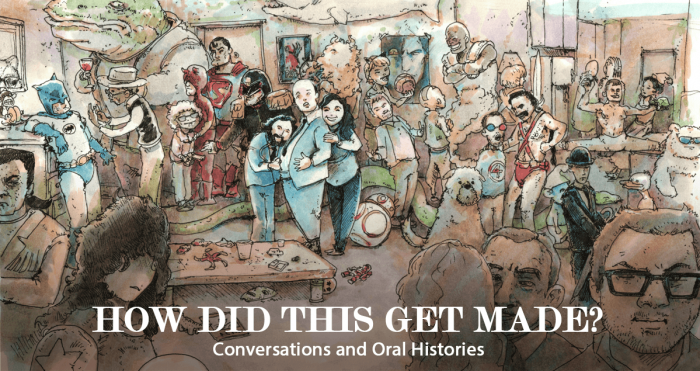 How Did This Get Made is a companion to the podcast How Did This Get Made with Paul Scheer, Jason Mantzoukas and June Diane Raphael which focuses on movies This regular feature is written by Blake J. Harris, who you might know as the writer of the book Console Wars, soon to be a motion picture produced by Seth Rogen and Evan Goldberg. You can listen to the Mel Brooks edition of the HDTGM podcast here.
How Did This Get Made is a companion to the podcast How Did This Get Made with Paul Scheer, Jason Mantzoukas and June Diane Raphael which focuses on movies This regular feature is written by Blake J. Harris, who you might know as the writer of the book Console Wars, soon to be a motion picture produced by Seth Rogen and Evan Goldberg. You can listen to the Mel Brooks edition of the HDTGM podcast here.
How bad did things actually get? And what, exactly, went wrong?
To find out what Mel Brooks had to say about Solarbabies, you can download our special episode of How Did This Get Made? or read the transcript below.
Mel Brooks: Hello, hello, hello!Blake Harris: Hey, Mr. Brooks! How are you?Mel Brooks: Hello, is this Blake Harris?Blake Harris: It is. How's it going?Mel Brooks: Okay. What do you want to know? What are you doing? Explain where Solarbabies fits into your plan.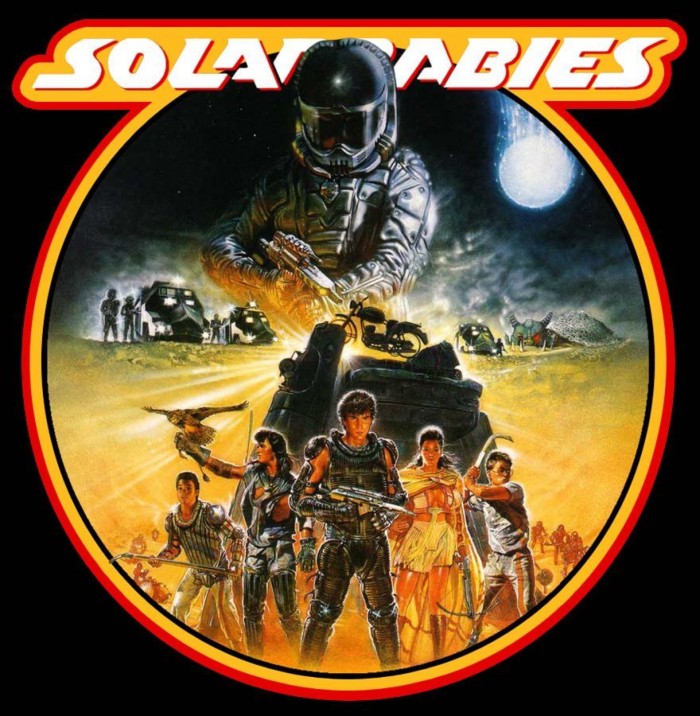 Blake Harris: Sure. So there is a podcast called How Did This Get Made. It's very popular, where they talk about movies—typically unsuccessful movies—and one of them was Solarbabies.Mel Brooks: I like that. I like that! Typically unsuccessful movies. I've got so many I could throw your way.Blake Harris: [laughter]Mel Brooks: Blake, listen. I'm going to tell you an incredible story. I'll give you everything, but first I'd like to tell you the whole arc. It's a great story and you're lucky that you called me because you'll never hear a story like this again in the history of cinema.Blake Harris: I feel lucky already.Mel Brooks: You ready?Blake Harris: Yeah...
Blake Harris: Sure. So there is a podcast called How Did This Get Made. It's very popular, where they talk about movies—typically unsuccessful movies—and one of them was Solarbabies.Mel Brooks: I like that. I like that! Typically unsuccessful movies. I've got so many I could throw your way.Blake Harris: [laughter]Mel Brooks: Blake, listen. I'm going to tell you an incredible story. I'll give you everything, but first I'd like to tell you the whole arc. It's a great story and you're lucky that you called me because you'll never hear a story like this again in the history of cinema.Blake Harris: I feel lucky already.Mel Brooks: You ready?Blake Harris: Yeah...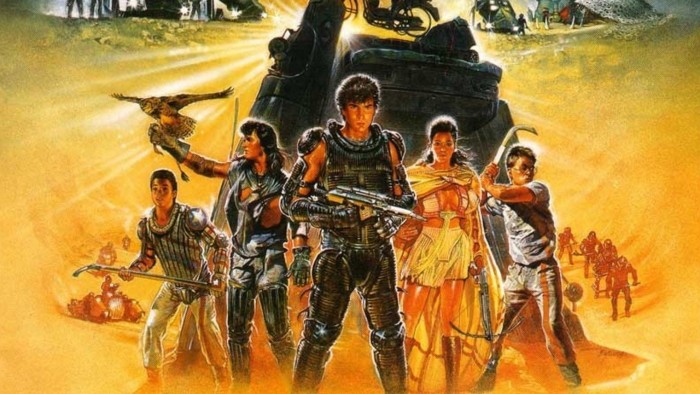 Mel Brooks: A woman worked for me in publicity for Brooksfilms. Her name was Irene Walzer. And she had a lot of energy and she was very smart, but she wanted to produce. So together with another guy called Jack Frost—you won't believe it—they brought me a project. Now the project was actually brought to them by a guy by the name of Jonathan Sanger.Blake Harris: Okay.Mel Brooks: Jonathan Sanger had done a lot of stuff with me, for me, basically he produced The Elephant Man for Brooksfilms, so he really had a lot of wonderful credits...so I trusted Jonathan, I trusted his taste. There were a couple of guys who wrote the script, one was Walon Green and the other was Douglas Anthony Metrov. They came up with a very good, really interesting script. This all happened in 1986, okay? So Irene Walzer and Jack Frost, they did their homework and said they thought they could make this; and Frost had done other movies, so I trusted him, even though Irene Walzer was a newcomer to producing, I figured with her energy, and her brains, between the two of them it could be a wonderful movie. And I okayed the cast of Solarbabies, which was wonderful. It was, in the lead, this young guy, unknown, Jason Patric. I believed in him, he later became a star. Jami Gertz, she became a star. Richard Jordan, who was wonderful. Lukas Haas, who became a star. James Le Gros, Adrian Pasdar and the great award-winning Charlie Durning. So I said this is a great cast, and I said to them [Walzer and Frost], "You're going to make this movie for five million bucks? All in?" And they said, "Yes, it can be done. If we can do it in Spain."Blake Harris: Why was Spain a cheaper alternative?Mel Brooks: Because you didn't have to worry about unions...Blake Harris: Okay, okay.Mel Brooks: Jack Frost said we could buy all the transport, we could buy the trucks, sell them back and actually make a profit. It was a real great bill of goods that I was sold, okay?Blake Harris: [laughing]Mel Brooks: Five million? I said, "Okay." I said I don't have to go to a bank for this. I'll just get a couple of partners. You know, I'll just ask a couple of guys I know who invest in movies and blah, blah, blah. We'll all put in money and together we can do it. So that's what I did. And I friend of mine that I trusted, who actually directed To Be or Not to Be—a wonderful movie—and actually directed Springtime for Hitler, did all the choreography for that movie. He was a choreographer/director, his name was Alan Johnson. A very talented guy and a good friend. And I figured what the hell. He loved the story and the casting, so I said this is going to be good. It's going to be good. Last, final words...you never heard from me again [that] this is going to be good. So they go to Spain and I give them a half a million dollars. To start, you know, looking around finding places to shoot, hiring a Spanish cameraman and whatever. And then they needed another half a million. Okay. So before anything happened, there goes the first million. Boom. Alright, they've got four million left to shoot a lovely sci-fi movie, with good characters and with very little (I thought) post-production...so I said fine. Fine. They start shooting and it starts raining. It never rained in Spain before. The rain in Spain falls mainly in the plains? No, they don't. They fall only in that place in Spain that they picked for their location.Blake Harris: Oh my gosh.
Mel Brooks: A woman worked for me in publicity for Brooksfilms. Her name was Irene Walzer. And she had a lot of energy and she was very smart, but she wanted to produce. So together with another guy called Jack Frost—you won't believe it—they brought me a project. Now the project was actually brought to them by a guy by the name of Jonathan Sanger.Blake Harris: Okay.Mel Brooks: Jonathan Sanger had done a lot of stuff with me, for me, basically he produced The Elephant Man for Brooksfilms, so he really had a lot of wonderful credits...so I trusted Jonathan, I trusted his taste. There were a couple of guys who wrote the script, one was Walon Green and the other was Douglas Anthony Metrov. They came up with a very good, really interesting script. This all happened in 1986, okay? So Irene Walzer and Jack Frost, they did their homework and said they thought they could make this; and Frost had done other movies, so I trusted him, even though Irene Walzer was a newcomer to producing, I figured with her energy, and her brains, between the two of them it could be a wonderful movie. And I okayed the cast of Solarbabies, which was wonderful. It was, in the lead, this young guy, unknown, Jason Patric. I believed in him, he later became a star. Jami Gertz, she became a star. Richard Jordan, who was wonderful. Lukas Haas, who became a star. James Le Gros, Adrian Pasdar and the great award-winning Charlie Durning. So I said this is a great cast, and I said to them [Walzer and Frost], "You're going to make this movie for five million bucks? All in?" And they said, "Yes, it can be done. If we can do it in Spain."Blake Harris: Why was Spain a cheaper alternative?Mel Brooks: Because you didn't have to worry about unions...Blake Harris: Okay, okay.Mel Brooks: Jack Frost said we could buy all the transport, we could buy the trucks, sell them back and actually make a profit. It was a real great bill of goods that I was sold, okay?Blake Harris: [laughing]Mel Brooks: Five million? I said, "Okay." I said I don't have to go to a bank for this. I'll just get a couple of partners. You know, I'll just ask a couple of guys I know who invest in movies and blah, blah, blah. We'll all put in money and together we can do it. So that's what I did. And I friend of mine that I trusted, who actually directed To Be or Not to Be—a wonderful movie—and actually directed Springtime for Hitler, did all the choreography for that movie. He was a choreographer/director, his name was Alan Johnson. A very talented guy and a good friend. And I figured what the hell. He loved the story and the casting, so I said this is going to be good. It's going to be good. Last, final words...you never heard from me again [that] this is going to be good. So they go to Spain and I give them a half a million dollars. To start, you know, looking around finding places to shoot, hiring a Spanish cameraman and whatever. And then they needed another half a million. Okay. So before anything happened, there goes the first million. Boom. Alright, they've got four million left to shoot a lovely sci-fi movie, with good characters and with very little (I thought) post-production...so I said fine. Fine. They start shooting and it starts raining. It never rained in Spain before. The rain in Spain falls mainly in the plains? No, they don't. They fall only in that place in Spain that they picked for their location.Blake Harris: Oh my gosh.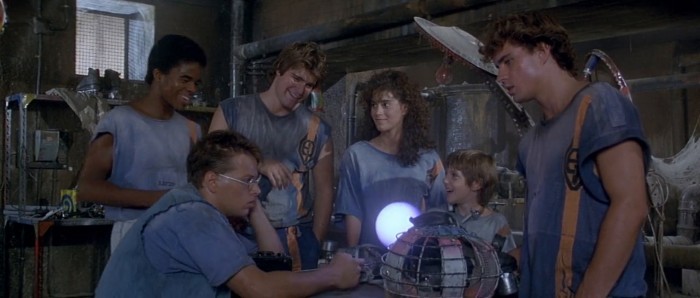 Mel Brooks: Alright, so the movie cost another million. So now they're up to roughly two-and-a-half million out of the five, and we have no real footage yet. Okay. Maybe it's gonna cost six. Okay, I'll raise the extra money, no problem. Blah, blah, blah, blah, blah, blah, blah. Okay, a couple of weeks go by and they need another million because I don't know. It's transportation, it's the film, it's printing, it's editing, ugh. I said, "Okay." So before we had maybe a thousand feet of film—which, you know, boils down to, like, maybe twenty feet out of a thousand is ever good for a movie—they've used up the $5 million.Blake Harris: Oh my god.Mel Brooks: So the choice was, I said, okay this has been a disaster. Why don't I just call everybody back home? Thank you. So I called my partners and they said look, they liked the hundred feet of film. They're ready to put in a little bit more money. Okay. So we all put in a little more money and they start filming. Some of the stuff is really interesting and good; some of it's just terrible, it's dreadful. It's just dopey. So I call Alan and Alan says, "There's a little bit of a, I don't know, a little bit of revolution here. They're against some of the things that I've said." So I go over there, I fly over to Spain...Blake Harris: Oh man, oh man...Mel Brooks: Yeah, I scream at them. I say, "LISTEN TO THE DIRECTOR OR ELSE YOU'RE ALL FIRED, WE'LL GET ANOTHER CAST." I really lay down the law and they all promise to listen. Alan calls me later and he says, "Okay, they're listening." [after a thoughtful pause] Maybe they shouldn't have listened, I don't know.Blake Harris: [laughter]Mel Brooks: I'm not sure whether they should have listened. So here we are, we're up to $8 million, those guys are broke. I'm not going to stick my hand in my pocket anymore. So I go to Morgan—it's a bank, Morgan Guaranty. I show them some of the footage, and they know some of the movies I've made—Young Frankenstein, I've made Blazing Saddles personally—so they know I've done very well. So they loan me $5 million just on, you know...and the $5 million is used up in the next 10 days. In bad shooting, in mistakes, the wrong film, discoloration. So I go back to Morgan, and now we're into $13 million. This is a $5 million movie! This is a great comedy, you know? This mis-film in Spain.Blake Harris: It is.
Mel Brooks: Alright, so the movie cost another million. So now they're up to roughly two-and-a-half million out of the five, and we have no real footage yet. Okay. Maybe it's gonna cost six. Okay, I'll raise the extra money, no problem. Blah, blah, blah, blah, blah, blah, blah. Okay, a couple of weeks go by and they need another million because I don't know. It's transportation, it's the film, it's printing, it's editing, ugh. I said, "Okay." So before we had maybe a thousand feet of film—which, you know, boils down to, like, maybe twenty feet out of a thousand is ever good for a movie—they've used up the $5 million.Blake Harris: Oh my god.Mel Brooks: So the choice was, I said, okay this has been a disaster. Why don't I just call everybody back home? Thank you. So I called my partners and they said look, they liked the hundred feet of film. They're ready to put in a little bit more money. Okay. So we all put in a little more money and they start filming. Some of the stuff is really interesting and good; some of it's just terrible, it's dreadful. It's just dopey. So I call Alan and Alan says, "There's a little bit of a, I don't know, a little bit of revolution here. They're against some of the things that I've said." So I go over there, I fly over to Spain...Blake Harris: Oh man, oh man...Mel Brooks: Yeah, I scream at them. I say, "LISTEN TO THE DIRECTOR OR ELSE YOU'RE ALL FIRED, WE'LL GET ANOTHER CAST." I really lay down the law and they all promise to listen. Alan calls me later and he says, "Okay, they're listening." [after a thoughtful pause] Maybe they shouldn't have listened, I don't know.Blake Harris: [laughter]Mel Brooks: I'm not sure whether they should have listened. So here we are, we're up to $8 million, those guys are broke. I'm not going to stick my hand in my pocket anymore. So I go to Morgan—it's a bank, Morgan Guaranty. I show them some of the footage, and they know some of the movies I've made—Young Frankenstein, I've made Blazing Saddles personally—so they know I've done very well. So they loan me $5 million just on, you know...and the $5 million is used up in the next 10 days. In bad shooting, in mistakes, the wrong film, discoloration. So I go back to Morgan, and now we're into $13 million. This is a $5 million movie! This is a great comedy, you know? This mis-film in Spain.Blake Harris: It is.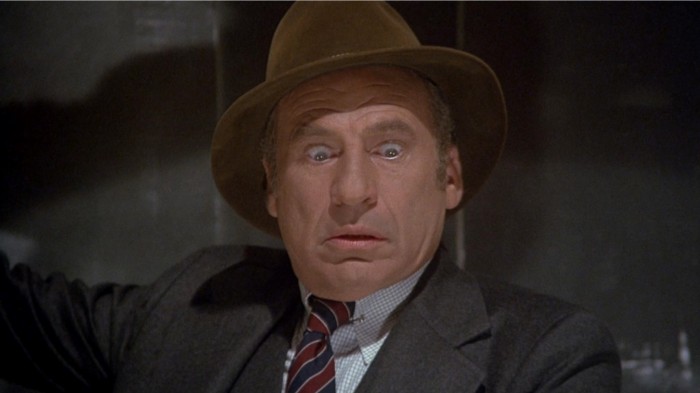 Mel Brooks: This wacky mashugana film in Spain that's not really happening. So I go back [laughing] to Morgan and I say, "Give me another $10 million, and I'll give you more interest of, you know." And for some reason they listened to me, which was a mistake on all our parts. They gave me another $10 million. Okay. Now...so this $5 million movie is costing $23 million and it's being shot in Spain. Anyway, they finished the movie—Alan finished it—and there was some storyline and there were a couple of good performances. And there was something like a movie [laughing], it was very close to being a movie. So they brought it back and I needed another $2 million to finish it, for special effects or something. I needed another $2 million and somehow, I don't know where I got it, but I got it. And now I gotta pay Morgan Guaranty back a lot of money. I'm broke. This film...people are coming to my house and my wife is saying, "Who are these people in our kitchen?" I said, "No, I'm just getting a little more insurance." But really I'm getting a second mortgage on the house. I had two cars, I put them up. I mean, I'm practically ready to jump off a roof, you know?Blake Harris: Yeah.Mel Brooks: I mean a roof like the Empire State Building, I'm ready to go. Because I am legally broke and in debt for the first time in my life. Seriously in debt. I go to Alan Ladd. First of all, I stay up for 2-3 nights in a row without sleeping and I make a phony baloney trailer so it looks like Star Wars. It looks like the greatest thing—it looks like it's going to be the greatest sci-fi picture ever made—a fairy tale in space. Irresistible! I make a 10-minute trailer. I take it to all the studios. I almost got Michael Eisner—where was he at the time? Paramount, and then went to Disney—and he said, "I'll give you back the money." He's gonna give me back the $23 million, it's gonna be his picture, you know? But [then-Paramount president of production Jeffrey] Katzenberg said "no." So anyway, this movie is now, like, I hear the death knell. I hear a bell tolling late at night. I can't sleep. Everything is mortgaged...I'm finished, I'm just finished.Blake Harris: And what do you think about it creatively?Mel Brooks: Creatively? Half of it is like pretty damn good, and half of it is like the worst movie I've ever seen in my whole life.Blake Harris: Alright, alright.Mel Brooks: Some of it...the best thing I could call it is adventuresome filmmaking, you know? An adventure in filmmaking. And I was going to title it Almost a Movie...Blake Harris: [laughing]
Mel Brooks: This wacky mashugana film in Spain that's not really happening. So I go back [laughing] to Morgan and I say, "Give me another $10 million, and I'll give you more interest of, you know." And for some reason they listened to me, which was a mistake on all our parts. They gave me another $10 million. Okay. Now...so this $5 million movie is costing $23 million and it's being shot in Spain. Anyway, they finished the movie—Alan finished it—and there was some storyline and there were a couple of good performances. And there was something like a movie [laughing], it was very close to being a movie. So they brought it back and I needed another $2 million to finish it, for special effects or something. I needed another $2 million and somehow, I don't know where I got it, but I got it. And now I gotta pay Morgan Guaranty back a lot of money. I'm broke. This film...people are coming to my house and my wife is saying, "Who are these people in our kitchen?" I said, "No, I'm just getting a little more insurance." But really I'm getting a second mortgage on the house. I had two cars, I put them up. I mean, I'm practically ready to jump off a roof, you know?Blake Harris: Yeah.Mel Brooks: I mean a roof like the Empire State Building, I'm ready to go. Because I am legally broke and in debt for the first time in my life. Seriously in debt. I go to Alan Ladd. First of all, I stay up for 2-3 nights in a row without sleeping and I make a phony baloney trailer so it looks like Star Wars. It looks like the greatest thing—it looks like it's going to be the greatest sci-fi picture ever made—a fairy tale in space. Irresistible! I make a 10-minute trailer. I take it to all the studios. I almost got Michael Eisner—where was he at the time? Paramount, and then went to Disney—and he said, "I'll give you back the money." He's gonna give me back the $23 million, it's gonna be his picture, you know? But [then-Paramount president of production Jeffrey] Katzenberg said "no." So anyway, this movie is now, like, I hear the death knell. I hear a bell tolling late at night. I can't sleep. Everything is mortgaged...I'm finished, I'm just finished.Blake Harris: And what do you think about it creatively?Mel Brooks: Creatively? Half of it is like pretty damn good, and half of it is like the worst movie I've ever seen in my whole life.Blake Harris: Alright, alright.Mel Brooks: Some of it...the best thing I could call it is adventuresome filmmaking, you know? An adventure in filmmaking. And I was going to title it Almost a Movie...Blake Harris: [laughing]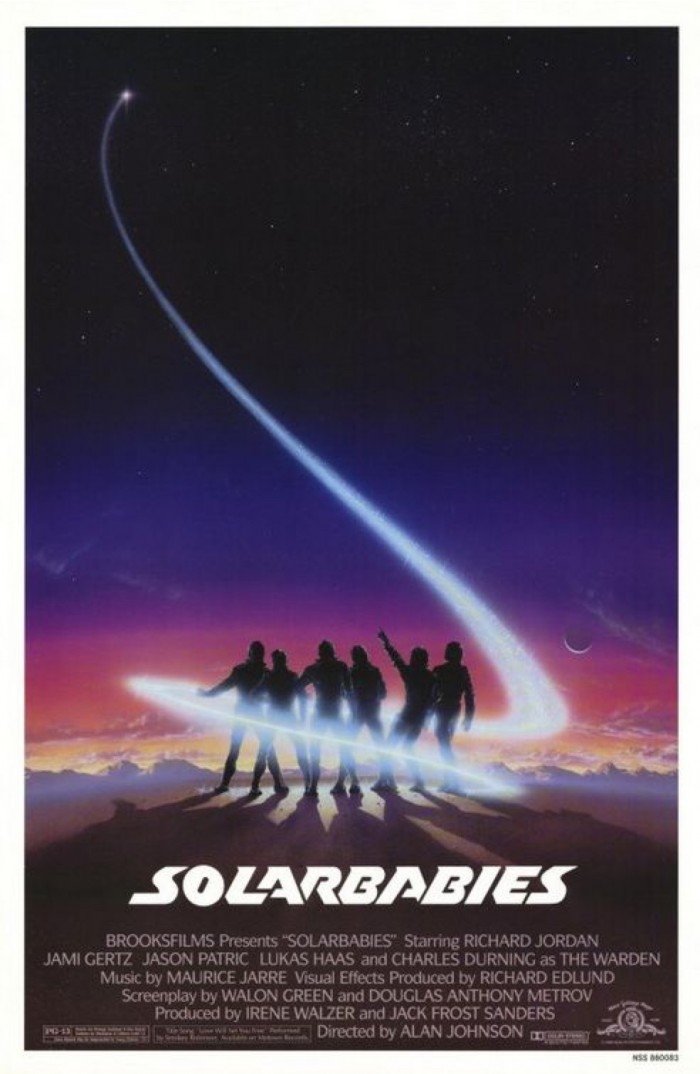 Mel Brooks: Anyway, I go to Alan Ladd Jr., who was my savior and my god at 20th Century Fox. "Laddie." Now Alan Ladd Jr. is in charge of MGM; he has a big fight with the bank at Fox or whatever, so then he goes and he takes over MGM. And he says, "Maybe we can save this." He says, "I can't give you that kind of money for this picture. There's a board that would stop me immediately. But MGM is part of UPI or something—a foreign distribution network—and maybe UPI can give you enough money. Now all I really need is 10 million bucks to pay back Morgan Guaranty to get my house and my cars out of hock and everything. And the rest of it, my partners and I, I mean we'll suffer whatever we have to suffer. But I don't want such an enormous personal loss. So I show all these guys—the foreign department of all these guys—the trailer and I said I was going to go overseas and do personal publicity for it. Marketing and you know. And they stand and they cheer. And UPM, or UPI, I don't know, they give me $14 million to own the picture. MGM foreign. They're going to distribute it foreign, MGM is going to distribute it foreign and domestic, so MGM puts up the most; two-thirds or whatever, half, anyway, we got $14 million. So I'm only out, personally, about nine. So I kissed Laddie and I thanked him and I get all my stuff out of hock. Morgan Guaranty, I give them their money back. And I said I've learned a lesson. And when I wrote The Producers, I put the line in: There are two things a Broadway producer must know. It's the rule of being a Broadway producer. Leo Bloom says to Max Bialystock. And what are those two rules, Mr. Bialystock? "One: never put your own money in the show. And two...what's the second one? NEVER PUT YOUR OWN MONEY IN THE SHOW!!!!!!!"Blake Harris: [laughing]
Mel Brooks: Anyway, I go to Alan Ladd Jr., who was my savior and my god at 20th Century Fox. "Laddie." Now Alan Ladd Jr. is in charge of MGM; he has a big fight with the bank at Fox or whatever, so then he goes and he takes over MGM. And he says, "Maybe we can save this." He says, "I can't give you that kind of money for this picture. There's a board that would stop me immediately. But MGM is part of UPI or something—a foreign distribution network—and maybe UPI can give you enough money. Now all I really need is 10 million bucks to pay back Morgan Guaranty to get my house and my cars out of hock and everything. And the rest of it, my partners and I, I mean we'll suffer whatever we have to suffer. But I don't want such an enormous personal loss. So I show all these guys—the foreign department of all these guys—the trailer and I said I was going to go overseas and do personal publicity for it. Marketing and you know. And they stand and they cheer. And UPM, or UPI, I don't know, they give me $14 million to own the picture. MGM foreign. They're going to distribute it foreign, MGM is going to distribute it foreign and domestic, so MGM puts up the most; two-thirds or whatever, half, anyway, we got $14 million. So I'm only out, personally, about nine. So I kissed Laddie and I thanked him and I get all my stuff out of hock. Morgan Guaranty, I give them their money back. And I said I've learned a lesson. And when I wrote The Producers, I put the line in: There are two things a Broadway producer must know. It's the rule of being a Broadway producer. Leo Bloom says to Max Bialystock. And what are those two rules, Mr. Bialystock? "One: never put your own money in the show. And two...what's the second one? NEVER PUT YOUR OWN MONEY IN THE SHOW!!!!!!!"Blake Harris: [laughing]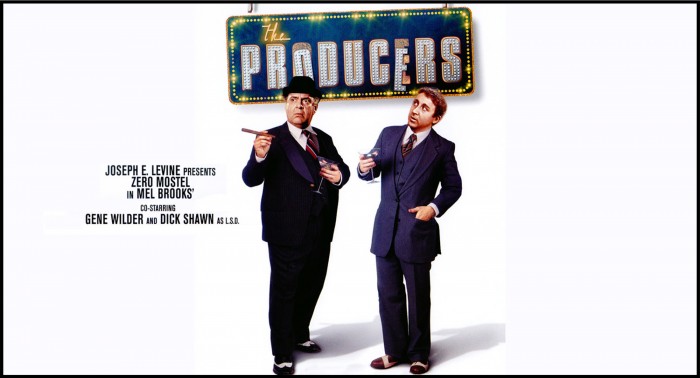 Mel Brooks: And I broke that rule. But anyway, over time—I don't know how and why, and I don't know what miracle occurred—but [chuckling] over the past 25 years or something, that goddamned picture finally broke even.Blake Harris: Oh my god.Mel Brooks: So MGM actually, not only the Morgan Guaranty, but MGM got their money back and of course their end of the profit (because, you know, they charge 40 percent off the top of whatever comes in to distribute, their distribution fee is 40 percent, it's amazing...).Blake Harris: Right, yeah.Mel Brooks: So they really made money on it and finally I was paid enough to get even. Partners and everything. It is a fucking miracle picture. It's like...if I did it as a movie, as a comedy, nobody would believe it.Blake Harris: I want to see that as a movie!Mel Brooks: So you're getting an amazing story.
Mel Brooks: And I broke that rule. But anyway, over time—I don't know how and why, and I don't know what miracle occurred—but [chuckling] over the past 25 years or something, that goddamned picture finally broke even.Blake Harris: Oh my god.Mel Brooks: So MGM actually, not only the Morgan Guaranty, but MGM got their money back and of course their end of the profit (because, you know, they charge 40 percent off the top of whatever comes in to distribute, their distribution fee is 40 percent, it's amazing...).Blake Harris: Right, yeah.Mel Brooks: So they really made money on it and finally I was paid enough to get even. Partners and everything. It is a fucking miracle picture. It's like...if I did it as a movie, as a comedy, nobody would believe it.Blake Harris: I want to see that as a movie!Mel Brooks: So you're getting an amazing story.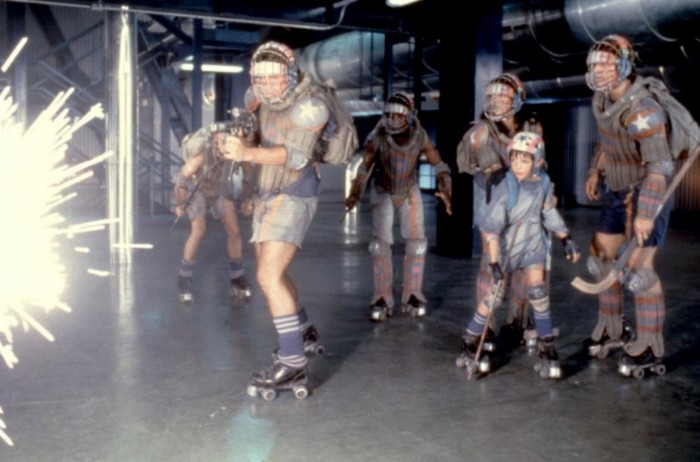 Blake Harris: Well, one question I had. You know, Alan [Johnson] is of course a great choreographer and he had directed a movie, but a sci-fi movie is a different kind of beast. Why did you—Mel Brooks: —Because I was lazy. And I didn't want to go to Spain.Blake Harris: Ha, yeah.Mel Brooks: I thought: I've got other fish to fry. $5 million? We can do this, we can knock this off. It's not much. What the hell? I'm only putting in about a million and a half of my own personal money, you know, I've got partners. It's like...not really paying attention to the utter reality, you know? But it was a great lesson. It was like 20-25 years ago, however many years ago, and since then I have been successful because it made be aware of everything that I was doing. With every other movie that I ever did. And I have been...I've never lost a penny since. I've never really failed since. I've never broke the bank and took, you know, a billion dollars, but I've really done very well ever since. Because it was an incredible lesson in diligence. A lesson in diligence: You must pay attention to the finances of what you're doing. Not just the artistic. Because, until then, I was only focused on the art of the film—making sure that worked—I didn't give a shit about the money. But then, when my house and my cars and my life...so ever since then, I've been diligent and paid a lot of respect to how things are funded; who put money in and how to get their money back, you know?Blake Harris: That is amazing story. And I'll let you go...Mel Brooks: That's the story. And you can't get a better story!Blake Harris: I know I can't!
Blake Harris: Well, one question I had. You know, Alan [Johnson] is of course a great choreographer and he had directed a movie, but a sci-fi movie is a different kind of beast. Why did you—Mel Brooks: —Because I was lazy. And I didn't want to go to Spain.Blake Harris: Ha, yeah.Mel Brooks: I thought: I've got other fish to fry. $5 million? We can do this, we can knock this off. It's not much. What the hell? I'm only putting in about a million and a half of my own personal money, you know, I've got partners. It's like...not really paying attention to the utter reality, you know? But it was a great lesson. It was like 20-25 years ago, however many years ago, and since then I have been successful because it made be aware of everything that I was doing. With every other movie that I ever did. And I have been...I've never lost a penny since. I've never really failed since. I've never broke the bank and took, you know, a billion dollars, but I've really done very well ever since. Because it was an incredible lesson in diligence. A lesson in diligence: You must pay attention to the finances of what you're doing. Not just the artistic. Because, until then, I was only focused on the art of the film—making sure that worked—I didn't give a shit about the money. But then, when my house and my cars and my life...so ever since then, I've been diligent and paid a lot of respect to how things are funded; who put money in and how to get their money back, you know?Blake Harris: That is amazing story. And I'll let you go...Mel Brooks: That's the story. And you can't get a better story!Blake Harris: I know I can't!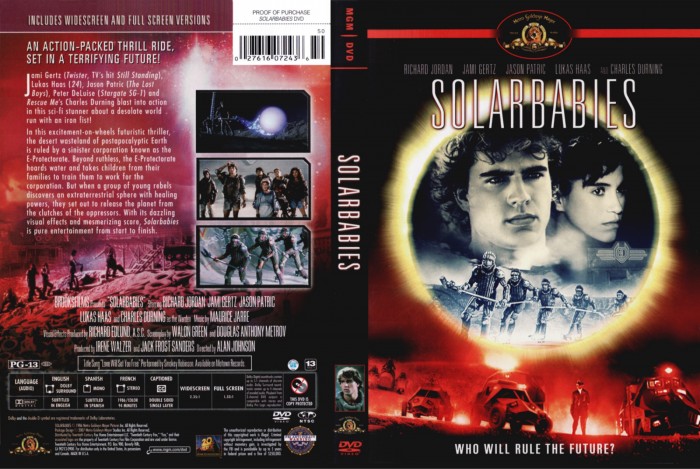 Mel Brooks: And Solarbabies is not a failure! It's not a failure, you can look it up. It's even, it's broken [even]. I don't know who saw it and why. There must have been...you know, I think what saved me was the invention of DVDs. Until then, there was no such thing as DVDs. So the invention of DVDs, the invention of television—of streaming—and all these outlets for films and hungry studios that needed material for distribution. So it got caught up in that and got to even. It's just amazing, [a] miracle; it's a miracle.Blake Harris: It really is. Actually, one more question if you don't mind: Do you remember the premiere of that movie given all the turmoil you had gone through and what a strange situation you were in?Mel Brooks: No, I think the most I ever did was show 13 minutes of it to UPM. To these guys that put in 10 or 14 million dollars. I mean, it was crazy. And I would say that about—oh, I don't know—honestly, the performances are so good. Patric and Jami Gertz. Lukas Haas and Durning. I'd say that about 65 percent of it is a really good, interesting picture. And the other 35 percent, you know, you can get through. You get to the next part, you get to the good parts. And you know, with these crazy wacky pictures, there's always a swath of young people that claim it as a different and wonderful movie. It has fans. I mean, I get letters—from Brazil or something; someone has to translate them from Portuguese—but they like the movie. I mean, they see something different. They see something wild and creative and different. You never know, you know?Blake Harris: That's incredible. Thank you so much, Mr. Brooks.
Mel Brooks: And Solarbabies is not a failure! It's not a failure, you can look it up. It's even, it's broken [even]. I don't know who saw it and why. There must have been...you know, I think what saved me was the invention of DVDs. Until then, there was no such thing as DVDs. So the invention of DVDs, the invention of television—of streaming—and all these outlets for films and hungry studios that needed material for distribution. So it got caught up in that and got to even. It's just amazing, [a] miracle; it's a miracle.Blake Harris: It really is. Actually, one more question if you don't mind: Do you remember the premiere of that movie given all the turmoil you had gone through and what a strange situation you were in?Mel Brooks: No, I think the most I ever did was show 13 minutes of it to UPM. To these guys that put in 10 or 14 million dollars. I mean, it was crazy. And I would say that about—oh, I don't know—honestly, the performances are so good. Patric and Jami Gertz. Lukas Haas and Durning. I'd say that about 65 percent of it is a really good, interesting picture. And the other 35 percent, you know, you can get through. You get to the next part, you get to the good parts. And you know, with these crazy wacky pictures, there's always a swath of young people that claim it as a different and wonderful movie. It has fans. I mean, I get letters—from Brazil or something; someone has to translate them from Portuguese—but they like the movie. I mean, they see something different. They see something wild and creative and different. You never know, you know?Blake Harris: That's incredible. Thank you so much, Mr. Brooks.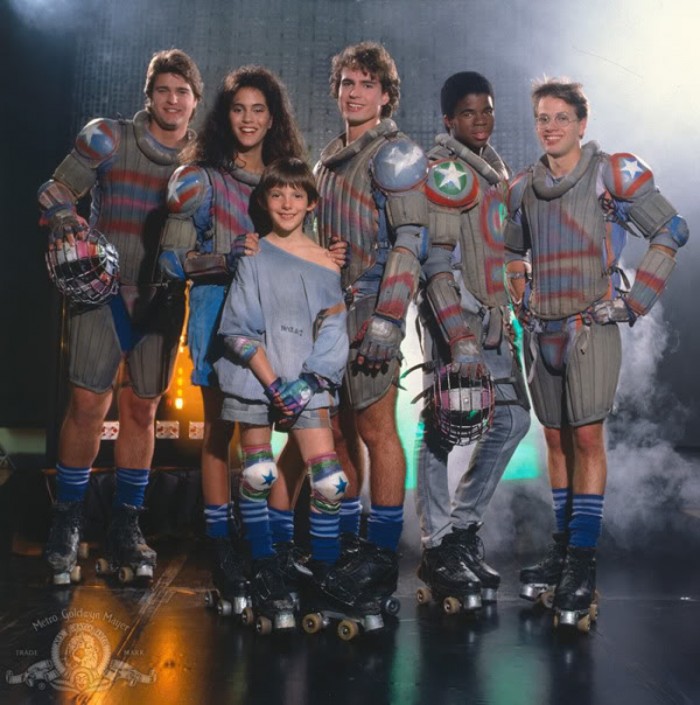 Mel Brooks: So what are you going to do with this? With this incredible story? Blake, I think you just gotta broadcast it, you know?Blake Harris: Yeah, I think so too.Mel Brooks: Yeah, I think the world should know: The secret of this interview is never give up, there are unknown and unseen miracles that may save you. Now, are you doing only failures [laughing] on this program?Blake Harris: For the most part, but there are some successful ones on there. But to your point, it's really interesting, every single person I've spoken with—almost everything single person—has always said "but the movie became a cult hit" because [these movies] are finding their audience now.Mel Brooks: It has found a weird and, you know, emotionally active audience that loves it, So different means different things to different people.Blake Harris: Yup.Mel Brooks: It's a different film, you know? For me, it's so different that I'd never walk in that direction again. But for somebody who's 14 years old who sees it, it may be like—I don't know—like finding Shangri-La, nirvana. Finding something unattainable and beautiful, you know? Young people have glorious imaginations. And it was my fault. I didn't do, I didn't do what the head of a company—and it was my company, Brooksfilms—[needed to do]. I made beautiful films at Brooksfilms because I supervised them. Because I produced them personally. It was The Fly, The Elephant Man, 84 Charing Cross Road, My Favorite Year. I'm giving you a list of the sterling [examples].
Mel Brooks: So what are you going to do with this? With this incredible story? Blake, I think you just gotta broadcast it, you know?Blake Harris: Yeah, I think so too.Mel Brooks: Yeah, I think the world should know: The secret of this interview is never give up, there are unknown and unseen miracles that may save you. Now, are you doing only failures [laughing] on this program?Blake Harris: For the most part, but there are some successful ones on there. But to your point, it's really interesting, every single person I've spoken with—almost everything single person—has always said "but the movie became a cult hit" because [these movies] are finding their audience now.Mel Brooks: It has found a weird and, you know, emotionally active audience that loves it, So different means different things to different people.Blake Harris: Yup.Mel Brooks: It's a different film, you know? For me, it's so different that I'd never walk in that direction again. But for somebody who's 14 years old who sees it, it may be like—I don't know—like finding Shangri-La, nirvana. Finding something unattainable and beautiful, you know? Young people have glorious imaginations. And it was my fault. I didn't do, I didn't do what the head of a company—and it was my company, Brooksfilms—[needed to do]. I made beautiful films at Brooksfilms because I supervised them. Because I produced them personally. It was The Fly, The Elephant Man, 84 Charing Cross Road, My Favorite Year. I'm giving you a list of the sterling [examples].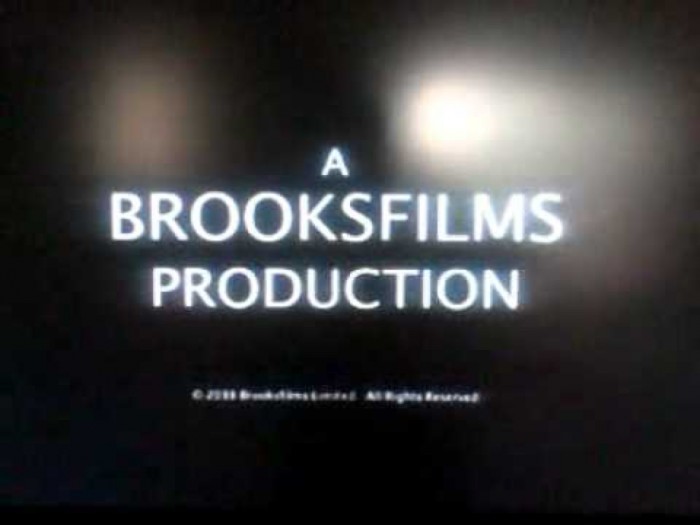 Blake Harris: What made you start Brooksfilms?Mel Brooks: You know why I started it? Because Billy Wilder told me to. Billy Wilder said, "You're a magnificent director, but you'll never get a chance to do a serious film. So take your name off it, just take your name off it. Take Mel Brooks away, take the baggage away. Because if you did The Elephant Man, people would just laugh. There must be a funny trunk or something. Just make it Brooksfilms and produce them and supervise them. Kind of direct them from afar. And then you'll be able to follow your heart and do more serious or artistic films than the public will allow you to do as Mel Brooks. So thank god for Billy Wilder. I did that—I've made about, I don't know, 14 Brooksfilms—and most of them are pretty good.Blake Harris: Well, what do you think it was that... following your heart was a direction that was not comedy? Obviously you were still doing comedy films, but...
Blake Harris: What made you start Brooksfilms?Mel Brooks: You know why I started it? Because Billy Wilder told me to. Billy Wilder said, "You're a magnificent director, but you'll never get a chance to do a serious film. So take your name off it, just take your name off it. Take Mel Brooks away, take the baggage away. Because if you did The Elephant Man, people would just laugh. There must be a funny trunk or something. Just make it Brooksfilms and produce them and supervise them. Kind of direct them from afar. And then you'll be able to follow your heart and do more serious or artistic films than the public will allow you to do as Mel Brooks. So thank god for Billy Wilder. I did that—I've made about, I don't know, 14 Brooksfilms—and most of them are pretty good.Blake Harris: Well, what do you think it was that... following your heart was a direction that was not comedy? Obviously you were still doing comedy films, but...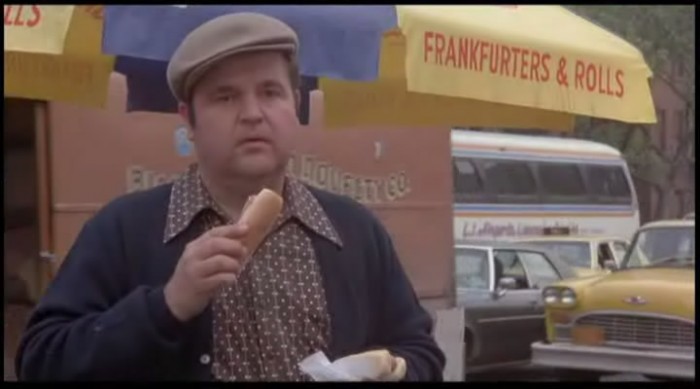 Mel Brooks: Because my wife, Anne Bancroft, had done a beautiful film and they couldn't find a studio for it. She had done a film called Fatso and everyone thought it was silly—just a silly film about a fat guy—and it was very, very meaningful...very funny, 'cause Dom DeLuise was the star and Anne was in it...but it was a very rich, beautiful and truly Italian-American film, you know? The language and the attitudes were...it was a great film. And nobody would make that script, so I jumped in. And Laddie, god bless him, released it. And that one got even too. And then from there on, everything I released was a big hit. Elephant Man was a big hit.Blake Harris: Yeah.
Mel Brooks: Because my wife, Anne Bancroft, had done a beautiful film and they couldn't find a studio for it. She had done a film called Fatso and everyone thought it was silly—just a silly film about a fat guy—and it was very, very meaningful...very funny, 'cause Dom DeLuise was the star and Anne was in it...but it was a very rich, beautiful and truly Italian-American film, you know? The language and the attitudes were...it was a great film. And nobody would make that script, so I jumped in. And Laddie, god bless him, released it. And that one got even too. And then from there on, everything I released was a big hit. Elephant Man was a big hit.Blake Harris: Yeah.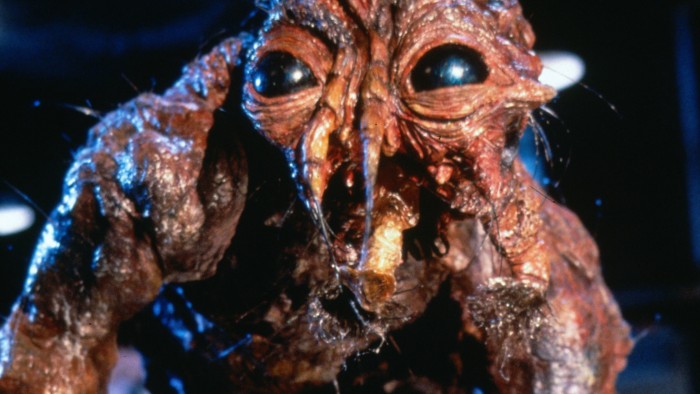 Mel Brooks: The Fly was an amazing, you know, big, big hit. There were some that have not gotten even, but I'm so glad I made them. And they didn't cost very much to make. A film called A Doctor and a Devil, it's a great film.Blake Harris: Were there ever any films that you wanted to make but didn't for whatever reason?Mel Brooks: Oh, well, there were one or two. I was thinking about making something about the Holocaust. Seriously.Blake Harris: Wow.Mel Brooks: And then I saw [Life is Beautiful]. It's ridiculous, you know? And it won the Academy Award or something.Blake Harris: It did, it did.
Mel Brooks: The Fly was an amazing, you know, big, big hit. There were some that have not gotten even, but I'm so glad I made them. And they didn't cost very much to make. A film called A Doctor and a Devil, it's a great film.Blake Harris: Were there ever any films that you wanted to make but didn't for whatever reason?Mel Brooks: Oh, well, there were one or two. I was thinking about making something about the Holocaust. Seriously.Blake Harris: Wow.Mel Brooks: And then I saw [Life is Beautiful]. It's ridiculous, you know? And it won the Academy Award or something.Blake Harris: It did, it did.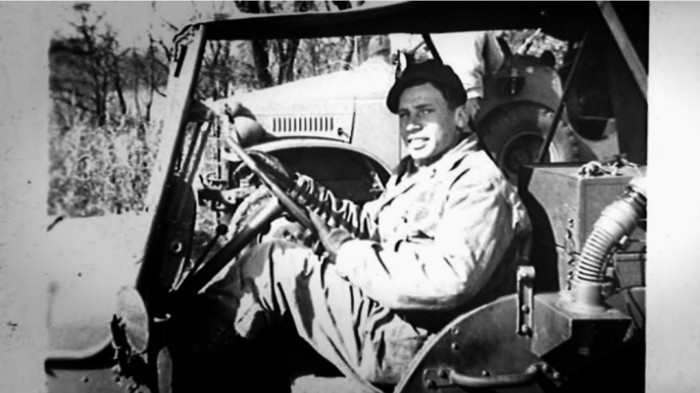 Mel Brooks: I thought it was a foolish take on this incredible, you know, monumental tragedy. And then I wanted to make a movie—and I still could make one—about my adventures, half funny and half sad, as a soldier in World War II.Blake Harris: I was really curious about that; I guess that warrants a separate conversation...Mel Brooks: I was ducking a lot of 88 millimeter shells. The Germans were very accurate with it, you know?Blake Harris: When you were in the war and you thought about coming back, did you have in mind that you wanted to do comedy television stuff?Mel Brooks: No, no, I didn't even know there was such a thing as television. When I was coming back, I wanted to be a stand-up comic in nightclubs. That's what I knew before I left.Blake Harris: How come?Mel Brooks: Well, because I had worked in the mountains. In the Borscht Belt in the Catskills. And that's what I did, I was a stand-up comic. So I figured, I was just hoping to live through the war and come back and do that again.Blake Harris: Ah, okay.Mel Brooks: Hey, Blake, it's been a pleasure and I love the idea of exhuming [laughing] all these dead little films. Some of them have great stories and some real worth, you know? And I think you can find a little gold when you dig them up.Blake Harris: Yeah, well, this is definitely the biggest golden nugget we've found yet. So thank you so much, Mel, this is...Mel Brooks: Yeah, I mean this is a story you can have a lot of fun with. Solarbabies: the greatest disaster turning into victory of my life.Blake Harris: Yup. Have a great night. Thank you so much.Mel Brooks: Alright, good luck, Blake.Special Thanks to Shelby Van Vliet (associate producer at Brooksfilms) for helping to arrange this interview and to Rick Gershman (copy editor extraordinaire) for getting this piece into Brooks-worthy shape.
Mel Brooks: I thought it was a foolish take on this incredible, you know, monumental tragedy. And then I wanted to make a movie—and I still could make one—about my adventures, half funny and half sad, as a soldier in World War II.Blake Harris: I was really curious about that; I guess that warrants a separate conversation...Mel Brooks: I was ducking a lot of 88 millimeter shells. The Germans were very accurate with it, you know?Blake Harris: When you were in the war and you thought about coming back, did you have in mind that you wanted to do comedy television stuff?Mel Brooks: No, no, I didn't even know there was such a thing as television. When I was coming back, I wanted to be a stand-up comic in nightclubs. That's what I knew before I left.Blake Harris: How come?Mel Brooks: Well, because I had worked in the mountains. In the Borscht Belt in the Catskills. And that's what I did, I was a stand-up comic. So I figured, I was just hoping to live through the war and come back and do that again.Blake Harris: Ah, okay.Mel Brooks: Hey, Blake, it's been a pleasure and I love the idea of exhuming [laughing] all these dead little films. Some of them have great stories and some real worth, you know? And I think you can find a little gold when you dig them up.Blake Harris: Yeah, well, this is definitely the biggest golden nugget we've found yet. So thank you so much, Mel, this is...Mel Brooks: Yeah, I mean this is a story you can have a lot of fun with. Solarbabies: the greatest disaster turning into victory of my life.Blake Harris: Yup. Have a great night. Thank you so much.Mel Brooks: Alright, good luck, Blake.Special Thanks to Shelby Van Vliet (associate producer at Brooksfilms) for helping to arrange this interview and to Rick Gershman (copy editor extraordinaire) for getting this piece into Brooks-worthy shape.
